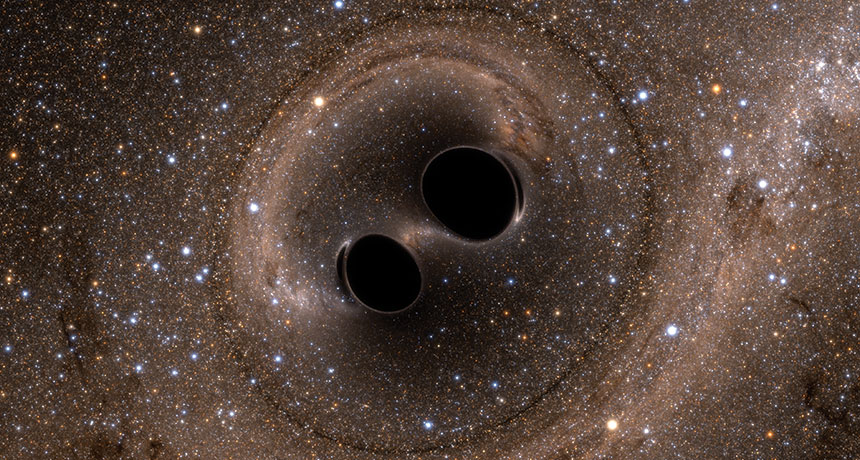On February 11, 2016 researchers announced the first successful detection of gravitational waves, confirming the final prediction of Albert Einstein’s general theory of relativity made 100 years ago.
Einstein predicted that the acceleration of massive objects (such as black holes) would impact the very fabric of space-time, and that this impact should theoretically be observable in the form of gravitational waves (essentially space-time distortions or ripples moving through the space-time at the speed of light).
Two of the most sensitive gravitational wave detectors in the world have been established in the U.S. — the LIGO Livingston Observatory in Louisiana, and the LIGO Hanford Observatory. LIGO stands for the Laser Interferometer Gravitational-Wave observatory.
On September 14, 2015 LIGO detected gravitational waves from the collision of two black holes. Black holes are places in the Universe where the gravity is so strong that even light cannot escape. There are black holes that formed when the Universe began, stellar black holes from when a large star collapses on itself, and even supermassive black holes made at the same time as their respective galaxies. A billion years ago in a galaxy far away, two black holes spiraled into each other, instantly releasing the energy of a billion trillion suns. Gravitational waves compress space in one direction, and stretch it in another — it’s this push and pull that helps us detect the waves.
LIGO has 2 ½ mile long arms with isolated mirrors at each end. Laser beams are used to measure the distance between the mirrors. When light waves are the same length, they will cancel each other out. However, a gravitational wave would stretch one arm and squeeze the other, resulting in a measurable discrepancy (only a fraction the size of a proton). The light detected by LIGO was transformed into a sound wave – and in this way we have been able to ear the ancient call of this cosmic catastrophe.
According to Columbia University professor and LIGO scientist Szabolcs Marka, “I think this will be one of the major breakthroughs in physics for a long time.” In addition to the exciting future discoveries and insights that gravitational wave detection will likely lead to, the validation of Einstein’s theory is a huge leap forward in terms of our general understanding of how the Universe works.

